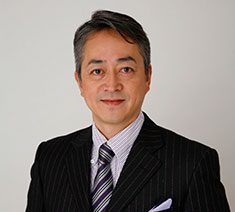
Shoji Imoto is chief executive of Financial Design, Inc.
Personal convictions about client satisfaction, along with an ability to anticipate both a changing business model and the increased globalisation of Japan, have put Shoji Imoto in the driving seat when it comes to helping expats with life-planning needs.
Imoto is chief executive of Financial Design, Inc., a firm that, with offices in Tokyo and Oita Prefecture, is entering its seventh year of operations.
As an insurance agent with an emphasis on wealth management issues, the firm has so far dealt only with Japanese clients. However, according to Imoto, the business is now looking to offer services to people of all nationalities living in Japan.
He believes his knowhow in the area of pensions and inheritance, in particular, can be of help to couples in which one partner is Japanese and the other an expat.
“We can help expat clients with issues such as life insurance, pensions, and with the Japanese tax system while they are in Japan”, he said.
“Also, for people with Japanese spouses who accompany them when they leave the country permanently, we can explain important points for Japanese residing overseas, based on the Japanese tax system”.
With 90% of Japanese adults holding some type of life insurance contract, policies tend to emerge as part of a solution to wealth management or life-planning challenges. In this area, one of Imoto’s specialities is the expertise he has nurtured in clarifying risk.
A registered financial planner, he believes a major part of his job is to make the client aware of risk, especially in the specialist areas of tax and inheritance strategies, along with life-planning.
“I see our work as taking the latent risks that our clients are not yet aware of, and helping to visualise this risk by bringing it into the open”, he said.
Depth and breadth of experience
Imoto began developing his skills at Mizuho Bank, Ltd.—ranked 17th in the world in the Bankers Almanac in November 2014—where he worked for 14 years in the loan operations and financial planning area.
However, not satisfied with the client service provided by a banking organisation, which tends to include job rotations every two or three years, Imoto moved to Alico Japan.
“While offering clients a plan that takes in their whole lives I felt that if I was going to be rotated to a new job or location every three years, then that would leave things half done”, he said.
“But with life insurance, I said to myself, ‘here is a job that I can continue on the client’s behalf for my entire life’. That is why I moved to become a life insurer”.
Imoto spent five years at Alico—the US-based insurer currently known as MetLife Insurance K.K.—working mainly as a consultant on inheritance matters for high-net-worth individuals.
Imoto did well at the firm, winning the rookie’s contest, the Top Club Most Valuable Player award three times, and the VIP prize, before being ranked in the worldwide contest in 2007.
But, after five years, he realised that if he truly wished to focus on the client, then it was necessary to expand his own business scope. He consequently chose to follow the path to independence in 2009, when he established Financial Design.
Imoto is currently attempting to create links with private banks and other investment organisations overseas to gather information so he is able to offer more multi-dimensional inheritance plans to clients.
“Without a global standpoint, our advice would also end up being too one-sided”, he said. “We are now attempting to further expand our overseas connections”.
Reading the industry
Gifted with the ability to anticipate events in Japan, Imoto’s decision to become independent broadly coincided with a shake-up in the life insurance industry.
A new set of laws governing life insurance practices that will strengthen accountability obligations vis-à-vis the client are set to be enacted from 2016. Further ahead, other potential measures might include details concerning disclosure of commissions that agents earn on policy sales.
Such a system, which has already been introduced in the UK, has led to about 40% of insurance sales staff leaving the industry due to their inability to comply with the more severe regulations.
“I believe a similar state of affairs may also arise in Japan, but it will have no bearing on our business at Financial Design”, Imoto said.
That is because, he explained, the firm focuses on consulting rather than sales. In fact, insurance sales are not the major objective of his business, and he believes becoming a lifelong partner with the client comes first.
Imoto’s work begins by making latent risks tangible for the client. In doing so, he helps them understand the nature of the risks they face. He will then consider the issues with the client, before taking necessary measures to resolve them. These include selecting the appropriate specialists, such as lawyers or accountants, to help the client achieve their purposes.
Although operating as a life insurance agent, Imoto stresses that life insurance is just one possible solution to clients’ problems.
As the name suggests, Financial Design is a financial planning business that anticipates all risks likely to emerge over the lifetime of a client—in a more comprehensive manner than other similar firms. Staff then draw up the necessary solutions.
Imoto believes that while the work of the financial planner has yet to be fully recognised in Japan, the importance of the role will increase against the backdrop of the decreasing birth rate, the greying of the Japanese population, and increased globalisation.
As a result, he is looking to increase the number of high-level financial planners at Financial Design.
“Our brand strategy is to improve service, not just to expand staff numbers”, he said.
Imoto’s trust-based approach to business has been developed over 20 years in the financial sector, and he intends to continue focusing on the interests of his clients.
“What I always tell my staff is that it is important not to focus on what they can make themselves, but on what we can provide for the client”, he said. “If we can please the client, then that helps to develop a trust-based relationship, thus creating a win-win situation”.







